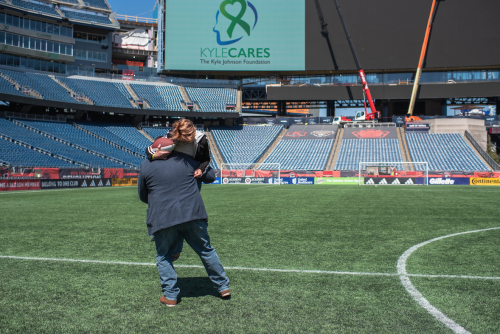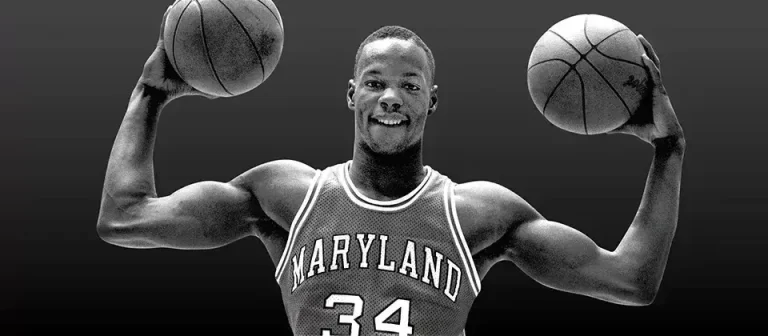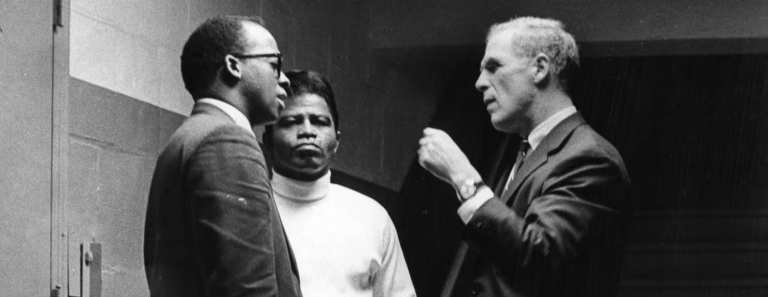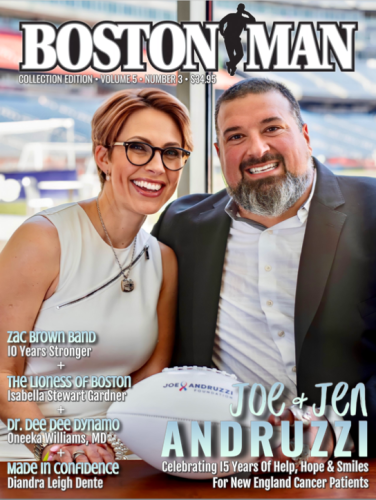
Fifteen years ago this May, Joe & Jen Andruzzi founded their namesake foundation, providing resources for families battling terminal cancer. With over $10m donated and over 40,000 patients reached, the JAF continues to be a champion for many throughout New England.
MOST New England Patriots fans know former offensive guard Joe Andruzzi for being a part of the early 2000s dynasty teams that won three Super Bowls and changed the trajectory of the franchise. But as they close in on 15 years, he is writing a different, impactful legacy in New England with his Joe Andruzzi Foundation (JAF).
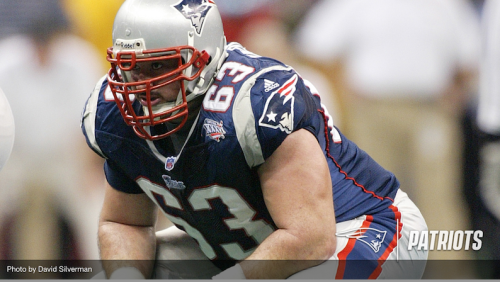
Both of those pursuits began at roughly around the same time. Through the Patriots, Joe and his wife, Jen, had the opportunity to meet and befriend C.J. Buckley, a young boy in the Providence, RI community with terminal brain cancer. After his passing in 2002, the Andruzzis created a fund in his honor to contribute to the research his team of doctors was doing at Boston Children’s Hospital.
Helping people came naturally to Andruzzi, who comes from a family of public service – Joe’s brothers were courageous New York City firefighters who were at Ground Zero on 9/11 and honored at Gillette Stadium for their actions that day. But after a few years of creating the fundraising arm, when Joe was just 31 years old, and in the midst of his playing career, he and Jen experienced being on the other side of things.
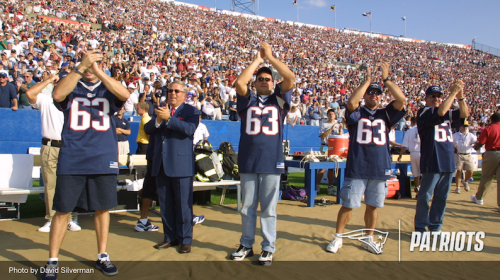
“I had to call [C.J.’s doctor] for my own help,” said Joe. What he thought was simply a stomachache that lingered turned out to be Burkitt’s non-Hodgkin’s lymphoma, a rare and aggressive form of cancer that can double in size within 24 hours. Jen couldn’t even understand him over the phone when he called her to break the news. “Action had to be done fast.”
Joe was understandably shaken up by what he’d just been told by the family physician. But luckily for him, Jen is the kind of person who gets things done, and she sprung into action. A battery of tests were run immediately to determine the best course of treatment.
At that time, Joe had been playing for the Cleveland Browns, and the family had a decision to make about where in the country would be the best place for his treatment. Between clinical trials available in the area and the family’s connection to it, the Andruzzis chose Boston. Treatment began the morning after their plane landed.
“It was a big blur,” said Joe. “I remember bits and pieces.” Whether “chemo brain” is still lingering or he’s subconsciously blocked it out, he relies on Jen, who still knows every detail of the plan she took the lead in coordinating, to fill in the gaps.
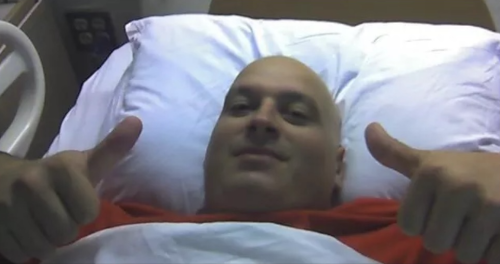
It was during that time that the Andruzzis became aware of what they refer to as “the financial toxicity of cancer.” They knew in that respect, they were in a fortunate situation: Joe’s NFL career spanned 10 years and they could keep their homes afloat while paying unexpected medical costs (e.g., co-pays, parking) and without immediate or future financial security concerns for their family but most others weren’t so lucky.
During the downtime they had with Joe’s treatments and rest, Jen spent a lot of time researching what resources were available to families in such situations. She found there wasn’t much out there for families living paycheck to paycheck.
“It takes a toll on their families and loved ones, everyone around them,” said Joe. With that in mind, once he finished his treatment and returned to health, Joe and Jen established the Joe Andruzzi Foundation in May of 2008.
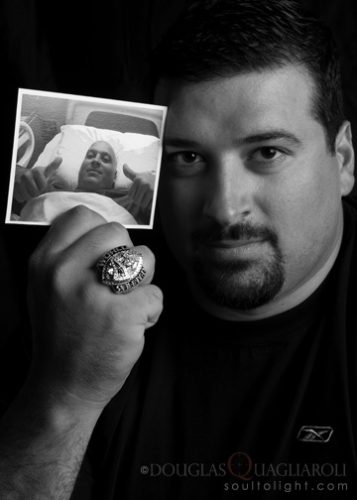
IN THE FIRST 15 YEARS of JAF’s existence, it has donated over $10 million to over 40,000 New England cancer patients and families, in addition to the countless hours of time its advocates have spent helping them navigate the scariest time of their lives.
In 2023, JAF is celebrating its 15th anniversary with a road trip to each of the six states the Foundation serves, visiting with healthcare partners, patients and donors. Their goal is continue to raise awareness around the Foundation’s mission and raise funds to expand resources for cancer patients.” As most foundations do, the JAF hosts fundraising events that also spread awareness, and have had runners participate in the Boston Marathon wearing a charity entry.
That was what brought the Andruzzis to Boylston Street that fateful Marathon Monday in 2013. They were feet away from the explosions; the Foundation hosted a watch party that doubled as a fundraising event at Forum Restaurant and had left to get ready to cheer on the JAF runners as they crossed the finish line. One of the iconic images captured that day is of Joe carrying an injured woman to safety.
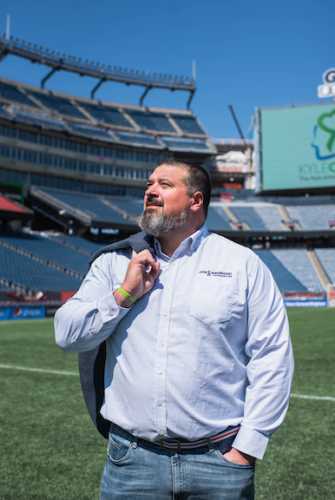
The next several hours were chaotic as Joe and Jen worked on accounting for everyone who had been at the event, many of whom had jumped in to help those who were injured when the second bomb went off right in front of Forum. When word spread about their actions, depicted by the photo of Joe, New Englanders considered him a hero.
Joe is adamant that’s not the case; that he was doing what anyone would have done.
Jen embodies that attitude and mindset as well. Many people associate her with the Marathon, but Jen didn’t start until after 2013. A former soccer player, she’s always been athletic. But completing a marathon was never on her radar, even though Team JAF had a presence in the Boston Marathon. The first time she bought ‘real running’ shoes and gave them a try was in 2012. She came home and threw them across the room, adamant she was better served as a cheerleader of Team JAF runners. But the bombings changed everything.
“For me, it was like, how do I ask runners to go out there on the course if I’m not willing to do it?” said Jen. “That’s what really empowered me to start training.”
She completed a half marathon in the winter of 2013 and trained rigorously for the 2014 Boston Marathon, when many of the JAF runners from the previous year who didn’t get to finish the race in light of the tragedies that unfolded would finally get their chance. During a 17-mile training run, Jen fractured her pelvis. Though initially devastated, Joe and Jen began to see it as something that was meant to be.
“Because I didn’t run, I was able to be with our runners who previously didn’t cross due to the bombings as they crossed the finish line,” said Jen. “I saw the purpose behind being injured.” She insists she wasn’t in that much pain; Joe is quick to confirm it was much worse than she would let on. She rehabbed for a year, and then their family, which includes five children, made the decision that she wouldn’t run the Marathon in 2016. That was, until one of the JAF bibs became available shortly before the marathon. Joe encouraged Jen to take it and run with it, quite literally. So did the team’s director. Jen ultimately said yes, trained for 30 days, and finished the Marathon in five hours and 25 minutes.
Since then, Jen has completed four more Boston Marathons and a Marine Corps marathon.
“It’s kind of contagious, I guess,” she said. Joe has yet to catch it. “I hated running during my playing days,” he said.
Jen’s leadership style translates from the marathon course to the JAF offices, where she serves as the Chief Executive Officer. “If I’m not willing to answer the phone or pick up the mail or go do an errand, how can I expect someone else to? I’m no better than anybody. It’s all very team-based.”
“And I’m the cheerleader,” Joe added about the foundation that bears his name. His official title is Chief Engagement Officer, and being out and about to connect with people and spread the word is what drives him.
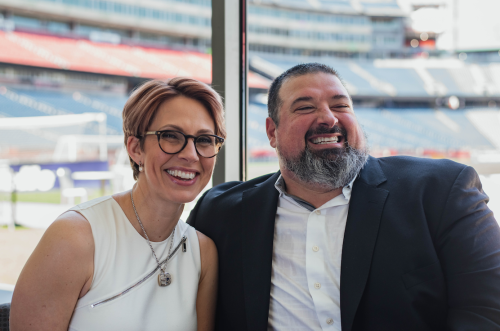
As the JAF transitions into its next chapter, more of that passion and execution will be needed. “I need to be more outward-focused, making sure our communities understand why JAF was created,” said Jen. “There are substantial needs for families that aren’t covered by insurance or qualifying programs. There are things that families diagnosed with cancer face that they didn’t expect because cancer doesn’t discriminate.”
They’ve helped people living in homeless shelters and tents. “That might have been their life before cancer, but now, the gravity is just so much bigger,” said Jen. She knows firsthand the joy and sorrow that goes on within the walls of the treatment centers as a caregiver for a patient, and the reality of the financial situation that patients and their families are thrust into.
“Nobody has savings for this when they’re healthy,” said Joe. “It takes a toll on you mentally and physically.” They’ve saturated the New England area; they’re in nearly every oncology center funding patients who are faced with the cost of cancer/financial toxicity. They help with food insecurity, payment of mortgage/rent and utility bills, and through their “extraordinary needs” program, have grant funding for things like home ramps – anything that would fall into the category of extraordinary.
They recently absorbed another nonprofit, Boston Cancer Support, which focused on treatment transportation. When they called Jen to ask the JAF to take it over, “it was one of the most flattering things that’s happened in my role, to be honest,” she said.
Partnering with Lyft, they help treatment teams schedule rides for patients whose barrier to treatment is transportation. JAF was able to increase the funding to the Treatment Transportation Program and is working to spread the program to New England states beyond Massachusetts. In addition to Lyft, they’ll partner with local cab companies in areas where the service is not available.
“If we’re not out there talking about it, it becomes very local,” said Jen. They want to impact as many markets as possible. The reason they created JAF – financial toxicity – hasn’t gone away in the past 15 years; if anything, it’s gotten worse. Though government programs and insurance companies do help to an extent, more is needed. Getting out and spreading the word isn’t something that comes naturally to Jen, but of course, she has no problem pushing herself outside of her comfort zone.
“JAF has to be around to take care of patients and families,” said Jen. “They need us. There’s no other nonprofit in New England of my knowledge that helps all cancer patients that are in active treatment at any age at any diagnosis.” Treatment centers look to JAF before they look anywhere else.
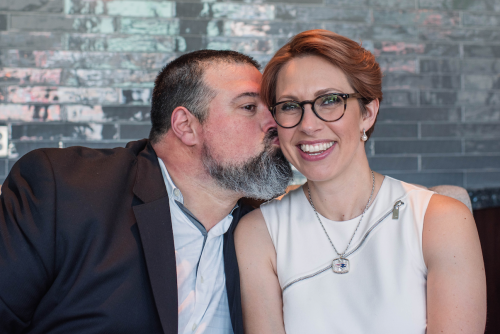
“That means I have to be out raising money and awareness so that when social workers come to us for aid for patients, we’re here, our doors are open, and we can fund them.” JAF grants 97% of the completed applications they receive.
“We’re honored to be able to say that,” said Joe. One of his favorite initiatives is “(Up)Beat Opportunities” – it doesn’t go towards anything that’s an immediate financial need, but he insists smiles and laughter are so important in facing challenges.
“It’s taking that negative and turning it into somewhat of a positive,” he said. “Smiling and laughing helps you heal.” When he was in inpatient treatment himself, he wasn’t able to go home much, but when he did, his then-seven-year-old daughter got a kick out of seeing him bald. Encouraging her to get it out of her system when he walked in the door and to hear the laughter was a little thing that went a long way for Joe.
Nothing makes Joe happier than meeting people whom JAF has helped, both at events and randomly while out and about, hearing about how JAF was able to make a difference, and getting to relay the messages to the entire team.
“It’s very rewarding,” said Joe. “I don’t do it for that, but it makes you strive and do more.”
They’re always seeking feedback about what patients need; food security and transport always come up. When in Rhode Island recently meeting a group of healthcare providers that help gynecologic, breast, or colorectal cancer, “the biggest thing they talked about is fertility preservation,” said Jen. “Unfortunately, I don’t think people understand how young women are getting diagnosed with these cancers.”
Once women have these treatments, they will most likely become infertile. “That’s devastating, and that is an extraordinary need,” said Jen.
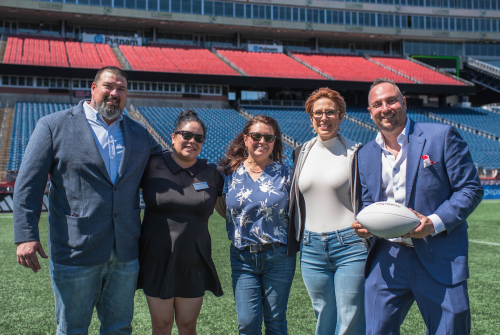
They’re constantly researching and consulting with social workers and their healthcare counsel. With more awareness and funding, the more they can do for cancer patients across the board and continue to pay it forward. JAF estimates they’ll increase funding within the next one to two years to keep up with inflation. They envision creating a platform where patients and their families can go and get connected with any and every kind of service they need, in one central place. Jen would love to one day advocate for patients on the policy side of things.
Part of the foundation’s growth is moving the annual gala to Boston for the first time from its usual location at Gillette Stadium. It only seems appropriate after reaching the 15-year mark and having their many goals for the JAF within reach.
“We know we’ll lose some people, but there are others who have always wanted to attend and now they’ll be able to,” said Jen.
The patient stories they hear every day is what inspires their growth and purpose. It gives Joe chills to hear from people that what he does now is even more impressive and impactful than what he did with the Patriots.
“I never thought we would become the legit business that we are today,” Jen said of JAF’s start. “You have to make sure when someone donates a dollar, that dollar is used correctly. They’re making an investment. It’s really important to me. 15 years ago, I had no idea. I just wanted to help people. I continue to educate myself – learning never stops for me.”
And pushing herself outside of her comfort zone to continue to in turn, keep pushing JAF to new levels of assistance. Jen, who’s never been much of a golfer, has taken that up, too, in support of JAF and its charity events. “And I’m her caddy,” said Joe.
Of course, he is.
